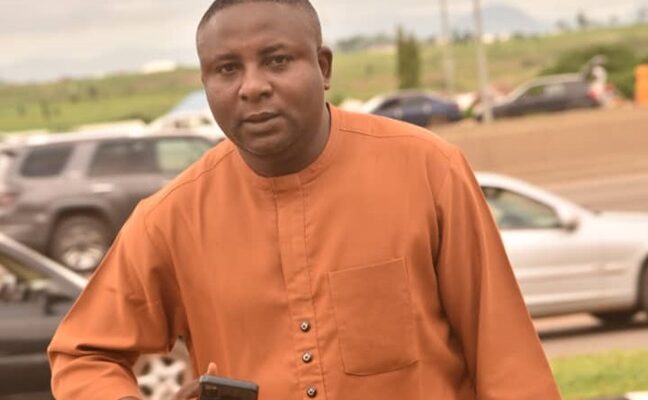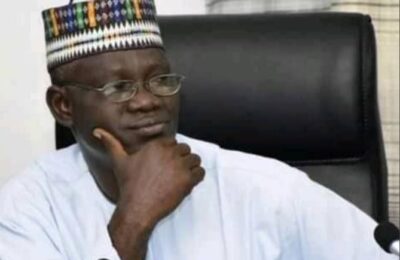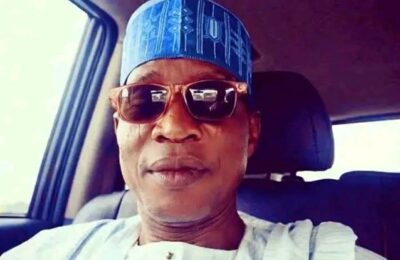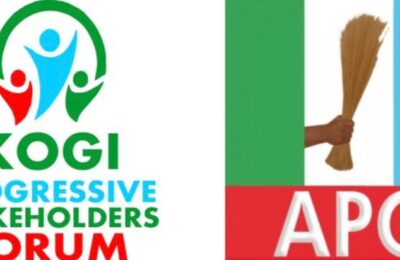As Kogi State marks its 34th anniversary, it is a moment to reflect on the path we have traveled as a people and to look ahead with renewed purpose for a collective destiny. This milestone calls for us to honour the sacrifices of the past while working to transform our resources and strengths into lasting prosperity for all our people.
A working state is measured not only by its natural endowments but also by its deliberate capacity to build knowledge and nurture an educated generation capable of shaping its own destiny. Kogi has invested consistently in higher institutions, with three state-owned universities, a polytechnic, colleges of education, schools of nursing, and health technology. These institutions do far more than grant certificates; they serve as incubators of knowledge, training grounds for professionals in medicine, engineering, teaching, administration, and technology. With enormous manpower and skilled professionals across diverse fields, Kogi is laying the intellectual and professional foundation for its social and economic development and such intellectual capital becomes the true strength of a people and the bedrock upon which sustainable development rests.
The true character of a developing state is revealed in how it manages, develops, and utilizes its natural resources for the good of its people. Kogi is richly endowed with over 32 solid mineral deposits, many of which are of high commercial value, ranging from iron ore and limestone to coal and gold. In a working state, such deposits are not left dormant but are carefully harnessed, refined, and processed into industries that provide jobs, wealth, and technological progress. The untapped potential in these minerals represents an economic arsenal capable of driving industrialization, reducing dependence on oil, and lifting thousands of families into prosperity. With proper regulation and investment, these resources can transform Kogi into one of Nigeria’s leading mineral economies.
The time has come for our dear state to step with boldness into the sphere of industrialisation and economic self-reliance. The creation of companies to drive local production, improve trade, and enhance competitiveness must be a central focus in the journey of transformation. Governor Usman Ododo should also be commended for establishing a few companies that will get the state into mining and exploration engagements. This is a forward-looking step that must be deepened until Kogi attains the epicenter of mining activities in Nigeria.
Our vast deposits of minerals must be harnessed with discipline and vision, to tap into the hidden prosperity that lies in that ecosystem. It is a duty of leadership to ensure that such wealth does not slip through our hands, nor should non-citizens be allowed to sit on our collective patrimony and cheat the state of its rightful place in the economic map of the nation. What is required now is a strong will to convert potential into sustainable wealth and to make Kogi a hub of industry and mineral prosperity.
Kogi’s location in the North Central makes it a natural bridge between the North and South of Nigeria, a position of undeniable strategic advantage. This advantage is a defining quality of a working state, where geography is turned into an asset for commerce, communication, and mobility. The road networks passing through Lokoja, the capital, connect to every region of the country, while the banks of Rivers Niger and Benue make Kogi a natural hub for transportation, trade, and logistics. In a developing economy, such advantages are not overlooked; they are harnessed to stimulate commerce, attract investors, and strengthen integration between regions. Kogi’s central position thus serves not only as a passageway but also as a symbol of national unity and exchange.
A working state does not only feed its citizens but also builds an agricultural system that ensures both survival and wealth creation. Kogi possesses vast arable land and rich water resources that support large-scale production of rice, yam, cassava, maize, and other staples. Beyond subsistence, a developing state invests in mechanized farming, irrigation projects, storage facilities, and agro-processing industries that extend the value chain from farm to market and export. By securing food production, Kogi strengthens its economy, reduces rural poverty, and positions itself as a potential food basket within the country. Agriculture, when modernized, provides jobs, generates revenue, and guarantees the resilience of the people against external shocks.
No state can claim meaningful development without the presence of industries that convert raw resources into finished products. In Kogi, the Ajaokuta Steel Plant and the Itakpe Iron Ore project remain symbols of Nigeria’s industrial ambition and unrealized potential. A working state nurtures such industries, diversifying them into cement factories, manufacturing plants, and medium-scale enterprises that absorb its youthful population into productive ventures. Industrial growth not only raises state revenue but also reduces dependency on imports and strengthens self-reliance, which is the hallmark of any modern economy. The revival of these industries will determine whether Kogi transitions from a resource-rich state to an industrial powerhouse.
Tourism reflects the value a state places on its natural beauty and cultural heritage. Kogi is blessed with landmarks like Mount Patti, the confluence of Rivers Niger and Benue, and historical relics in Lokoja, which once served as the first administrative capital of Nigeria. In a working state, such sites are not left idle but are developed into accessible tourist centers with infrastructure, marketing, and hospitality services that attract both local and foreign visitors. Beyond leisure, tourism provides employment for local communities, earns revenue for the state, and preserves culture for future generations. By investing in this sector, Kogi can build a vibrant tourism economy that rivals its mineral and agricultural sectors.
The backbone of true development is functional infrastructure, which connects people, goods, and services across communities. Kogi has witnessed steady expansion in road networks that link rural areas to urban centers and neighboring states, ensuring that no community remains completely cut off. Its waterways also offer untapped opportunities for cargo and passenger transport, while its central location demands continuous investment in bridges, rail lines, and highways. A working state prioritizes electricity, water, and modern communication facilities to drive commerce, reduce cost of living, and improve standards of life. Infrastructure is not simply about roads and bridges but about creating an enabling environment where industries thrive and citizens prosper.
The youth are the greatest strength of any society, and in a developing state, they are not left idle but engaged productively for the good of all. Kogi’s youthful population is being absorbed into its schools, technical training centers, and emerging entrepreneurial programs. A working state does not only educate its youth but empowers them with access to credit, mentorship, modern technology, and platforms to showcase their talents in agriculture, mining, ICT, and sports. By harnessing this energy and creativity, Kogi secures its future, reduces unemployment, and minimizes the risk of social unrest. A purposeful youth policy remains one of the most powerful instruments of long-term growth.
The health of citizens reflects the seriousness and compassion of governance. Kogi has established schools of nursing and health technology to build a steady stream of professionals for its hospitals, clinics, and health centers. A working state invests not only in training but also in healthcare delivery systems that ensure mothers, children, and the aged can access affordable medical care without hardship. With stronger facilities, expanded rural health services, and preventive care, Kogi can reduce its disease burden, improve life expectancy, and sustain the productivity of its workforce. Good health is not a privilege; it is a right, and it remains central to the dignity of every citizen.
No society develops in the absence of stability and accountable leadership. Since its creation, Kogi has been an active participant in Nigeria’s democratic process, producing leaders who contribute significantly to both state and national politics. A working state strengthens democratic institutions, ensures internal security, promotes inclusive dialogue, and fosters accountability in leadership. This political stability creates the enabling environment in which education, health, and business can flourish. By safeguarding peace and consolidating democracy, Kogi anchors its development on solid political foundations that guarantee continuity.
The people of Kogi are naturally industrious, engaging in trading, crafts, services, and entrepreneurship across its towns and rural communities. A working state nurtures this spirit of enterprise by providing markets, microfinance schemes, and technology to improve productivity and expand small-scale ventures. Small and medium-scale businesses remain the backbone of every modern economy, as they reduce unemployment, strengthen resilience, and generate local wealth. By encouraging innovation and enterprise, Kogi is gradually building a self-sustaining economy rooted in the creativity and hard work of its citizens.
Energy is the engine of industrial and domestic life, and its availability determines the speed of growth. The Rivers Niger and Benue provide Kogi with natural potential for hydroelectric projects, while the state’s deposits of coal and gas offer further energy alternatives. A working state develops these resources into reliable energy systems that provide steady power for industries, markets, and households. With improved energy supply, Kogi can drive production, reduce costs, attract investment, and lessen the heavy dependence on imported fuel. Energy, when properly managed, serves as the lifeblood of industrialization and modern living.
Kogi is a melting pot of diverse ethnic groups, including Igala, Ebira, Okun, Bassa, and Nupe, among others. A working state turns such diversity into strength by promoting mutual respect, cultural appreciation, and shared identity. Despite differences, cultural harmony creates an atmosphere of peace where people can work together for collective progress. Festivals, traditional institutions, and inter-communal dialogue become channels for strengthening social bonds and preserving heritage. In embracing unity in diversity, Kogi demonstrates the resilience and maturity required to build a peaceful and prosperous society.
Beyond physical infrastructure, the real wealth of a state lies in the quality and productivity of its people. By expanding its educational institutions and professional training centers, Kogi is steadily building a reservoir of doctors, engineers, teachers, administrators, and scientists. A working state ensures that these trained citizens are absorbed into meaningful employment, where their knowledge contributes directly to state and national development. This investment in human capital is the surest guarantee of sustainable growth, for infrastructure may decay but the capacity of an empowered people endures.
The picture of a working state is incomplete without an attractive investment climate. With its rich minerals, fertile land, tourist attractions, and strategic central location, Kogi offers vast opportunities for both local and foreign investors. A developing state enacts policies that protect investments, reduce bureaucratic bottlenecks, and encourage innovation. By opening its doors to partnerships in mining, agriculture, manufacturing, and real estate, Kogi positions itself as a future economic hub for Nigeria. A secure and transparent investment climate ensures that prosperity flows not only to investors but to the ordinary citizens of the state.
Yet, as Kogi reflects on its 34 years of existence, there are areas where the Governor’s leadership can further strengthen the state’s developmental journey. The first is security and social stability, for no progress is possible in an atmosphere of fear, conflict, or disorder. By strengthening community-based policing, intelligence gathering, and inter-agency collaboration, the state can protect farmers in rural communities, safeguard mining sites from illegal activities, and inspire confidence in investors. Ensuring youth inclusion and fostering peaceful dialogue among diverse groups will guarantee long-term stability for growth and prosperity.
Another germane area is infrastructure and industrial revitalization, particularly the urgent revival of Ajaokuta Steel and other moribund projects. A working state leverages public-private partnerships to restore such industries while also expanding electricity supply, road networks, and bridge construction to support modern commerce. Such an effort will not only unlock jobs for thousands of young people but also firmly establish Kogi as Nigeria’s industrial anchor. The Governor’s bold leadership in this direction would create a lasting legacy of economic transformation and productivity.
The third area is health and human welfare, which touches directly on the dignity and well-being of the people. Strengthening hospitals, upgrading rural health centers, and expanding health insurance schemes will improve life expectancy and reduce preventable deaths across the state. Giving priority to maternal and child health, alongside programs that empower women, support the poor, and cushion vulnerable households, will humanize governance and create a compassionate state that values every life. By building this welfare-centered system, the Governor will leave behind a legacy that is both humane and enduring
A critical area that deserves the governor’s attention is infrastructure and industrial expansion. While progress has been made in road construction, housing, and basic facilities, the pace of industrial development must be accelerated to create lasting economic foundations. Kogi State holds immense potential as a hub for agro-processing, manufacturing, and mining-linked industries, yet many of these opportunities remain underexplored.
The government should consider establishing new industrial clusters and public-private partnerships that can attract investment, stimulate local production, and reduce dependency on external supply chains. When citizens can find employment in industries built within their communities, it reduces poverty, stabilizes families, and increases the state’s internally generated revenue. No state can attain prosperity without strong infrastructure serving as the backbone of industrial growth.
Another pressing area is education and skills development. While successive administrations have invested in schools and higher institutions, there remains a wide gap between classroom learning and the skills required for today’s labor market. The future of Kogi State lies in producing young men and women who are not only educated but are also skilled in areas such as technology, engineering, healthcare, and entrepreneurship.
The governor should consider programs that link technical training with industries, thereby equipping young people to thrive in a competitive economy. A state that invests heavily in human capital is securing its long-term prosperity. As Nelson Mandela once remarked, “Education is the most powerful weapon which you can use to change the world.” If Kogi develops a generation of skilled citizens, it will possess both the leadership and workforce needed to drive growth across all sectors.
Security is the bedrock upon which all development rests, and it is an area that must continue to be strengthened. The reality is that no matter how rich a state may be in resources, or how ambitious its leaders may be in planning, insecurity can undermine every effort. The governor should be encouraged to deepen investments in modern security infrastructure, including surveillance systems, intelligence networks, and rural security schemes that empower local communities to safeguard their environments.
At the same time, peacebuilding and community cohesion should remain priorities, as unity is a shield against division and violence. When citizens feel safe in their homes, farms, and businesses, they are free to invest their energy into productive ventures that uplift the entire state. By ensuring that security remains at the center of governance, Governor Ododo can guarantee that Kogi continues to move forward with confidence and stability.
May God bless the Confluence state and the Federal Republic of Nigeria
– Oyigu Elijah writes from Abuja.




